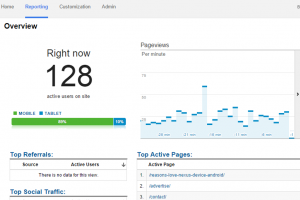PPC agency life can be hectic – bouncing from tasks, meetings, phone calls, training, blog-reading. Within a given week, I can average 4-7 meetings per day. Sometimes it’s amazing that we can balance getting all of our tactical work done when comparing the time we spend living in conference rooms or enduring hour-long conference calls. How do we keep our sanity?
Hey, it’s what we do! And we’re (hopefully) good at it! But have you ever finished a meeting and found you were asking yourself, “What was the point of this meeting? What did we just accomplish”? Or worse, have you LED meetings where you felt like that at the end? Trust me, we’ve all been there.
The core of client and account management is communication – How do we speak to our target consumer audience to persuade them to take an action? How do we interpret the data to tell the performance story? How do we collaborate with our peers and our clients to achieve great results? It all comes down to how we communicate with each other, and meetings are where a lot of that talking happens. But does a lot truly get done? If you’re immediate answer is “no,” then it may be time to change how you run your client meetings.
Below are the top three tips I have for how to take your meetings from dud to stud.
#1: State Your Meeting Goal

Say you jump on your weekly call with your client. Your assumption going in is that she’d like to review week-over-week performance and hear about the optimization tasks you’ve completed. But as you begin to chat, you find she’s discussing a new product line and launch dates. What was the original goal of the meeting? Where did it end up detouring? How do you get it back on track?
My suggestion here is going to feel awkward, but it works incredibly well – at the very start of your meeting, state what the goal of the meeting is. What are you hoping to accomplish in the next 30 mins? We all feel a sense of comfort when ambiguity is removed, so stating the meeting goal up front allows for the client to either confirm that they are on the same page as you, or interject to express their different desired goal. From there, you can set the expectation for what will be reviewed during your time together and ensure there’s a central topic to return to if the conversation moves in another direction.
Want to take it a step further? Make sure that the goal ties back to your client’s emotional need. They don’t just care about the goal, but about how it impacts them and how it’ll make their life easier or happier. Be sure to include that in your beginning meeting goal statement.
Here are some examples:
“The goal of our meeting today is to review our campaign structure suggestions and how they will aid in hitting your company’s monthly CPA target”
“Our meeting today will be centered on mobile search trends and their impact on your account, and end in a summary that you can provide your boss this week”
“Our goal during our time together today is to review weekly campaign performance and discuss how we’re pacing to your monthly KPIs”
#2: Stop Reading Off The Numbers

Agency folks get into a comfortable rhythm, particularly when leading client calls or meetings. We tend to want to just talk about the data, and save less time to discuss what the data means or what it’s guiding us to do.
But that’s what clients are paying us for! So CTR went down by 20% – okay, what does that mean to the client? And what are we as their agency going to do about it? The equation is typically 80/20 – we wrongly spend 80% of the meeting time walking through the data and 20% of the time talking about action items or next steps. If you want your client to believe in the value you bring to them, then you better switch to 20/80.
How do you do refocus on your account plans without appearing like you’re avoiding talking about performance? You have to be delicate with your approach. What kind of client are they? Are they well-versed in the channel you’re discussing? Do they want a bit more of the nitty-gritty tactical or optimization details? Or do they really only laser-beam focus on the core KPIs?
Know what your clients care about, and spend the majority of the time talking about optimizations, projects, and initiatives you as their agency are doing in order to help them grow. At the end of the day, a client can read a report of the numbers you send to them regularly. What they really want to know is what path their account is headed on and how they can deliver that message upward.
Before any client meeting, write down no more than three major data-supported performance takeaways from the previous week or month. Keep numbers clear and clean. (Did CTR go up by 27.24%? Say 28%. No one is going to remember the decimals.) And get straight to the point. Then, tie action items or next steps directly to those numbers.
Here’s a simplistic example:
“CTR went up 28% month-over-month, which was due to our bidding strategy adjustment to increase bids to aim for Positions 1 – 3. Therefore, for this next month, we’re going to continue bidding for the same ad positioning in order to maintain elevated CTR and get more people to our pages and through the conversion path.”
#3: Outline, Expand, Repeat

How do you know your ideas are being believed by clients? You’re not going to find success if you’re waiting to get affirmation from them every time you share a nugget of knowledge or try to persuade them to your way of thinking. Instead, you know you’ve been successful when you hear your clients saying back to you what you’ve told them. That tells you they understand and trust in your knowledge, advice, and partnership.
Therefore, don’t share an idea once with your client and assume they’ve got it down pat. Especially if it’s a complex solution, or if it’s something you’re hoping to sell them on but sense resistance or roadblocks (also, please don’t just sell for the sake of selling – clients can smell it a mile away). Come to your client meeting ready to walk through the following three steps:
- OUTLINE the core ideas (keep it to 3-4, since beyond that is too much information)
- EXPAND on the details behind each core idea
- REPEAT the core ideas
Here’s an example:
OUTLINE
“I wanted to talk to you today about enabling mobile bidding in the account. The three reasons why I think we should do this include 1) capitalizing on growing mobile search trends in your vertical 2) utilizing your newly optimized mobile site experience and 3) accurately tracking mobile conversions to understand how that device targeting contributes to your monthly KPIs.”
EXPAND
“Mobile searches are growing monthly, having surpassed desktop searches in 2015. Knowing this search trend is growing rapidly in your vertical, I think we should capitalize on this growing audience and enable mobile bidding…”
“We also now have a great opportunity to send mobile searchers to your mobile-optimized site, which will provide a better user experience and likely result in higher conversion rate opportunity…”
“Lastly, we can track mobile conversions just as we currently track desktop and tablet and can measure and understand the impact this device could have on growing your conversion volume month-over-month.”
REPEAT
“In summary, I think it’s a great time to enable mobile bidding in the account to capitalize on growing mobile searches in your vertical, send mobile searchers to an optimized landing experience for their device, and measure how mobile impacts your bottom line.”
This Seems So Simple…
You’re right, this isn’t complex stuff! But client managers often leave these simple processes and practices by the wayside because it means having to do preemptive planning and list-making – something we don’t always feel we have time to do.
Be intentional and make the time. Show your client you run an organized, efficient ship by coming to client meetings with agendas, checklists, and goals in mind so that you can accomplish more when you’re together.

Let’s end the “what was that meeting about?” feeling! Let’s deliver a better experience for our clients with better meetings.
Business & Finance Articles on Business 2 Community(102)
Report Post



